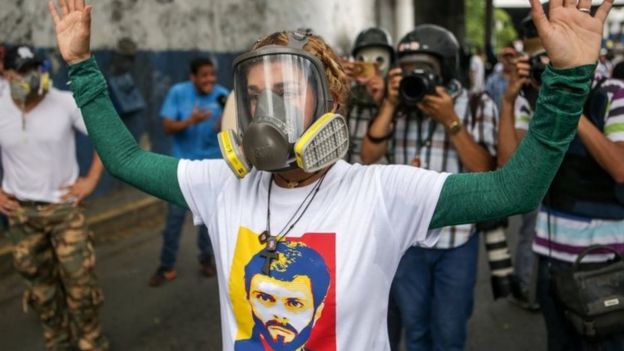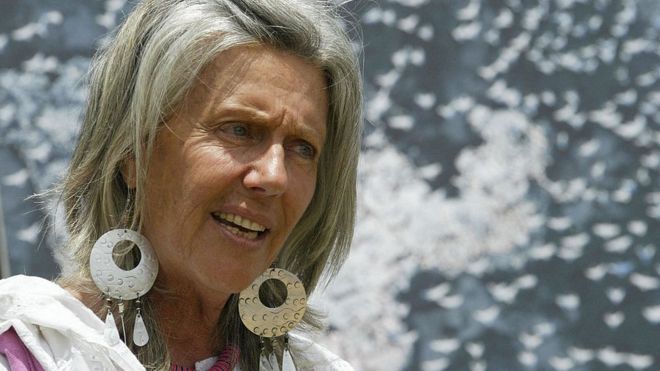Atrocity Alert, No. 53, 3 May 2017
No Images? Click here

Atrocity Alert is a weekly publication by the Global Centre for the Responsibility to Protect highlighting and updating situations where populations are at risk of, or are enduring, mass atrocity crimes.
South Sudan
Since 25 April an escalation of fighting between government forces and armed rebels in South Sudan’s Upper Nile state has threatened populations in several towns, particularly on the West Bank of the Nile River. More than 40,000 people have arrived in the town of Aburoc, including 25,000 who fled from violence in Kodok. On 29 and 30 April the UN Secretary-General and the Chairperson of the African Union (AU) Commission expressed grave concern about the violence. Humanitarian organizations have no access to the area, leaving more than 38,000 vulnerable civilians without assistance.
More than a year and a half after formally signing the Peace Agreement, which was supposed to end South Sudan’s 2013-2015 civil war, fighting continues in many parts of the country, famine has been declared in Leer and Mayendit counties, and key aspects of the Agreement remain unimplemented. Since January there have been military offensives by government forces in Eastern Equatoria, Central Equatoria, Western Bahr el-Ghazal, Upper Nile and Unity states. At least 1.9 million civilians remain internally displaced and another 1.6 million have sought refuge in neighboring countries.
The UN, AU and Inter-governmental Authority on Development must send a strong and unified message to all parties in South Sudan regarding the future of the 2015 Peace Agreement. To prevent further re-escalation of armed conflict, the UNSC should immediately impose an arms embargo and extend targeted sanctions against those who have command and control over forces responsible for targeting and killing civilians.
Today the Global Centre for the Responsibility to Protect released a statement on the situation in South Sudan.

Photo Source: AP/Getty Images

Source: OCHA

Myanmar
Myanmar’s State Counsellor and former Nobel Peace Prize winner, Aung San Suu Kyi, told a press conference in Brussels yesterday that her government will not accept the fact-finding mission mandated by the UN Human Rights Council to investigate possible crimes against humanity and ethnic cleansing committed against the Rohingya Muslim minority. State Counsellor Suu Kyi said that she believes the UN inquiry would be potentially divisive.
At the same time the Rakhine State government has announced plans to establish “model villages,” where authorities intend to relocate ethnic Rohingya, including those who have been displaced by previous inter-communal violence and/or security “clearance operations.” The plan, which could amount to forced relocation for approximately 1,500 families, would further entrench the apartheid-like conditions imposed upon the Rohingya by the government of Myanmar.
Protection of Healthcare in Conflict
Today, 3 May, marks the anniversary of the adoption of UN Security Council Resolution 2286 on the protection of healthcare in conflict. The resolution condemned attacks and threats against medical personnel and facilities, and demanded accountability for those responsible for these crimes under international law. The resolution also reaffirmed the primary responsibility of states to protect their populations. Despite the unanimous adoption of Resolution 2286, attacks on health workers and medical facilities continue.
The Syrian American Medical Society verified 168 attacks on medical facilities and personnel across Syria between June and December of 2016, including with illegal cluster munitions and incendiary weapons. Physicians for Human Rights also reported that Syrian government forces prevented the delivery of more than 300,000 medical treatments to besieged and hard-to-reach areas during 2016. According to the UN Office for the Coordination of Humanitarian Affairs (OCHA), six hospitals in Syria were damaged or destroyed by airstrikes in April 2017 alone. In Yemen, airstrikes and the shelling of hospitals, as well as the looting of medical facilities, have exacerbated the dire humanitarian situation. OCHA has reported that less than half of all medical facilities in Yemen are still functioning.
On 25 May the UN Security Council will hold a second debate on the protection of civilians and healthcare in conflict. Deliberate attacks on medical facilities and personnel, and the obstruction of medical aid, are war crimes. States must ensure that their forces consistently comply with their obligations under international law and uphold their responsibility to protect. All attacks on healthcare facilities and health workers must be impartially investigated and the perpetrators held accountable. The UN Secretary-General should also publicly list those states, and non-state armed groups, that target healthcare during armed conflict.

Photo Source: Ammar Abdullah/Reuters


Photo Source: Ghaith Omran/AFP
Connect With Us







